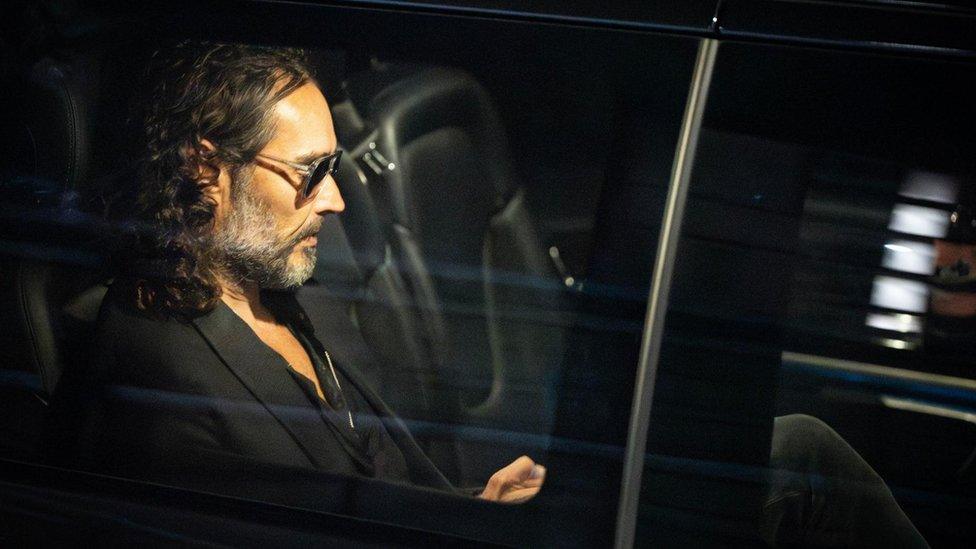Russell Brand behaviour was an open secret, says one accuser
- Published
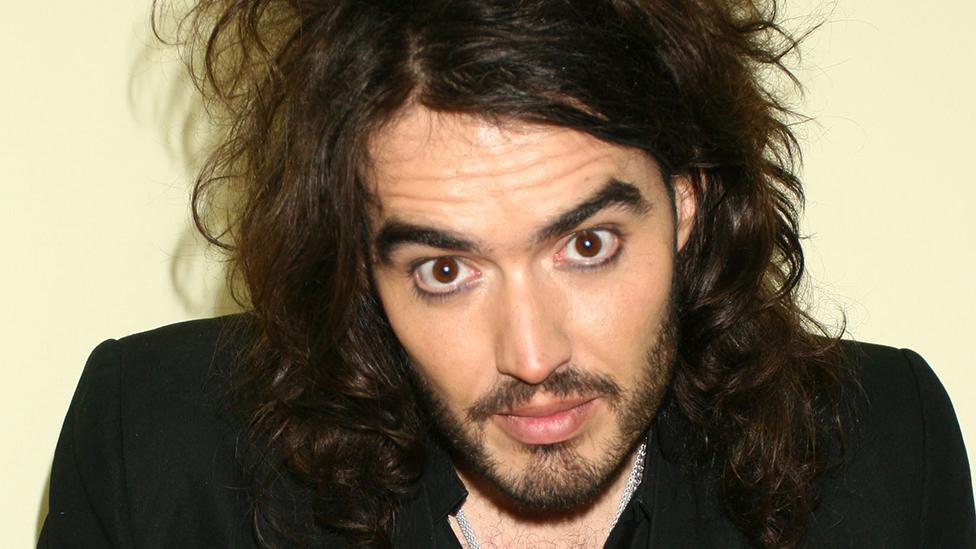
Russell Brand is an English comedian, actor and broadcaster
One of the women who has accused entertainer Russell Brand of sexual assault when she was 16 has said his behaviour was an "open secret".
The woman, known as Alice, added that allegations against him have been "a long time coming".
The comedian and actor has been accused of rape and sexual assaults between 2006 and 2013, which he denies.
Speaking for the first time since accusations became public, she said his denial is "laughable" and "insulting".
"It feels quite honestly surreal at the moment to see my story everywhere and even elements of my story on the front pages of publications that I hadn't spoken to," Alice told BBC Radio Four Woman's Hour presenter Emma Barnett.
"And it feels like it was a long time in the coming.
"But it also felt like something that would never be realised for me, and so I can't say that I'm glad because it's been an unpleasant experience. But I hope that we can have conversations that can lead to protecting people in the future."
Brand has denied all claims of misconduct, saying he's a subject of "a coordinated attack" involving "very serious allegations that I absolutely refute." The former TV and radio presenter, who now posts videos online about spirituality and politics, said his relationships have been "always consensual".
Alice said she found his response to be "insulting" but unsurprising. "And it's laughable that he would even imply that this is some kind of mainstream media conspiracy," she continued.
"He's not outside the mainstream. He did a Universal Pictures movie last year, he did Minions - a children's movie. He is very much part of the mainstream media.
"He just happens to have a YouTube channel where he talks about conspiracy theories to an audience that laps it up. And it may sound cynical, but I do think that he was building himself an audience for years of people that would then have great distrust of any publication that came forward with allegations. He knew it was coming for a long time."
She added: "And as for him denying that anything non-consensual happened, that's not a surprise to me. These men always deny any of these allegations brought to them. I knew he would.
"He didn't deny that he had a relationship with a 16-year-old."
Allow X content?
This article contains content provided by X. We ask for your permission before anything is loaded, as they may be using cookies and other technologies. You may want to read X’s cookie policy, external and privacy policy, external before accepting. To view this content choose ‘accept and continue’.
Alice went on to say her mother did everything in her power to warn her daughter, then still at school, off the entertainer, then in his 30s.
"She followed all those motherly impulses. She took my phone away. She grounded me... she would try to keep me confined to the house," she explained.
Alice said she felt she had been "groomed" and felt "cheapened", developed an eating disorder and that her experience had affected her future relationships.
"It's the biggest open secret going - you don't have to be an investigative journalist to have conversations with somebody who has an awful experience with him or somebody knows something."
She is now calling for an introduction of legal "staggered ages of consent".
Investigations have been launched by the BBC and Channel Four since Brand was accused of rape and sexual assault.
The allegations were made in a joint investigation by the Sunday Times, the Times and Channel 4's Dispatches.
Alice described the claims made against him as "just the tip of the iceberg".
She stated her belief that a chauffeur-driven car provided by the BBC for Brand collected her and took her to his house. She now wants to know "why more wasn't done at the time" to protect young women.
The BBC said in a statement: "The documentary and associated reports contain serious allegations spanning a number of years Russell Brand worked on BBC radio programmes between 2006 and 2008, and we are urgently looking into the issues raised."
More allegations
Alice also said there were requests for girls and women to be "taken off" the show, with reference to Brand's work with Channel Four.
"I was working in television at the time, and was party to conversations about employing Russell on a TV show and taking women off those shows too, so that he didn't assault them, because he had before and that, he wasn't inappropriate with them. 'So we'll just take the young women off so that he can work on this'," she said.
Channel Four said in a statement it was looking into allegations raised.
The Times said it has received more allegations since the investigation was revealed, but is yet to verify them.
Production company Banijay UK says it has launched an "urgent investigation" into allegations of misconduct against Brand, who presented programmes produced by a company it now owns in 2004 and 2005.
The full details of the fresh allegations against Brand since the weekend may not emerge for some time, one of the journalists investigating him has said.

Saturday's performance at Wembley Park Theatre was Brand's first public appearance since allegations against him were published
Sunday Times media editor Rosamund Urwin, who worked on the story, told BBC Breakfast that any fresh claims need checking which "takes a huge amount of work".
She noted journalists have received a "huge number of leads" since the story broke on Saturday,
Brand went ahead with a gig that evening for 2,000 fans at the Troubadour Wembley Park Theatre, in London, part of his Bipolarisation tour.
Lorraine Heggessey, the former controller of BBC One from 2000 until 2005 - before Brand worked for the corporation - said there were "numerous examples" of unacceptable behaviour by the star on-air which should have been dealt with by his bosses.
One such example saw Brand jokingly offer up his female assistant to Jimmy Saville during a live phone conversation.
"Well, it is shocking," she told BBC Radio 4's Today programme. "Obviously at that time, the revelations about Jimmy Savile hadn't come out. But even then, the content of the clip I would have thought would have been unacceptable to be broadcast, and should have been flagged, editorially and referred up the chain."
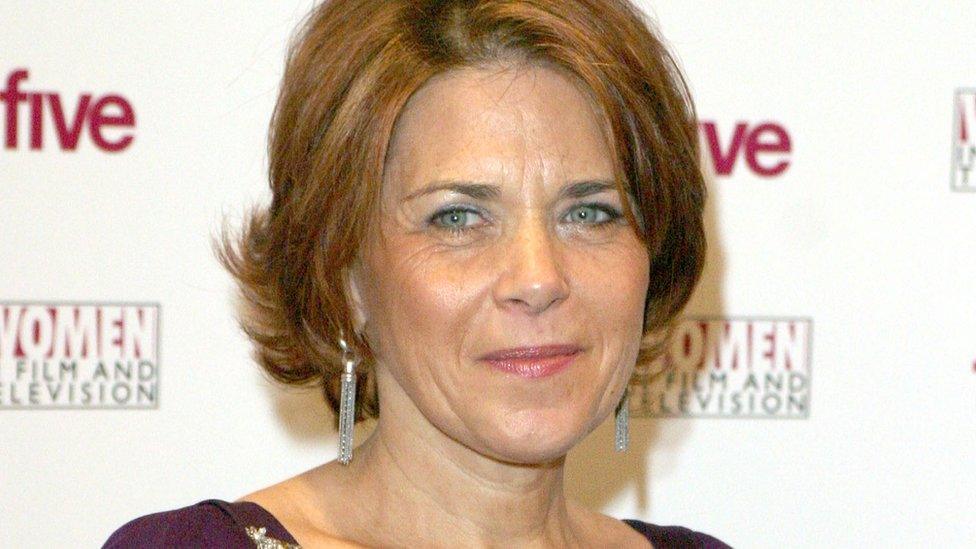
Lorraine Heggessey also told BBC Radio 5 Live's Nicky Campbell that there was a culture of pandering to top stars
Asked if this had been part of the overriding culture at the time, Heggessey - who appeared in the Dispatches documentary - replied: "Well, I think it was part of the culture of the Russell Brand show, I'm not sure it was the part of the culture in general at that time, and there's just seems to have been a lack of senior editorial oversight over what he was doing and an inability to rein him in."
She added: "There were numerous examples of his behaviour and his constant demeaning of the female newsreader, who was increasingly put in an impossible position, and even when complaints were obviously made about it, he joked about those on-air.
"So nobody seems to have stepped in at any time to say enough is enough, and the results are plain for all to see."
The BBC reiterated it was "looking into the issues raised".
Related topics
- Published18 September 2023
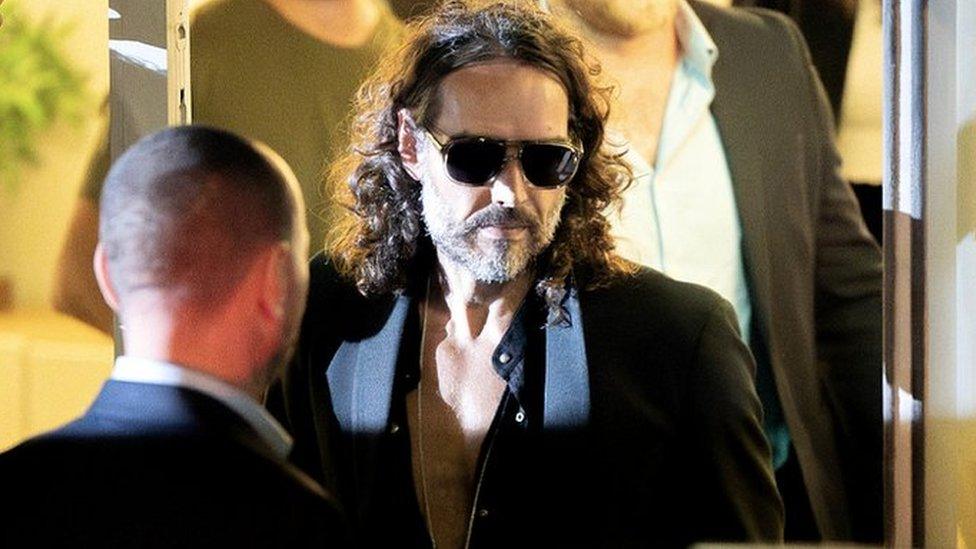
- Published18 September 2023
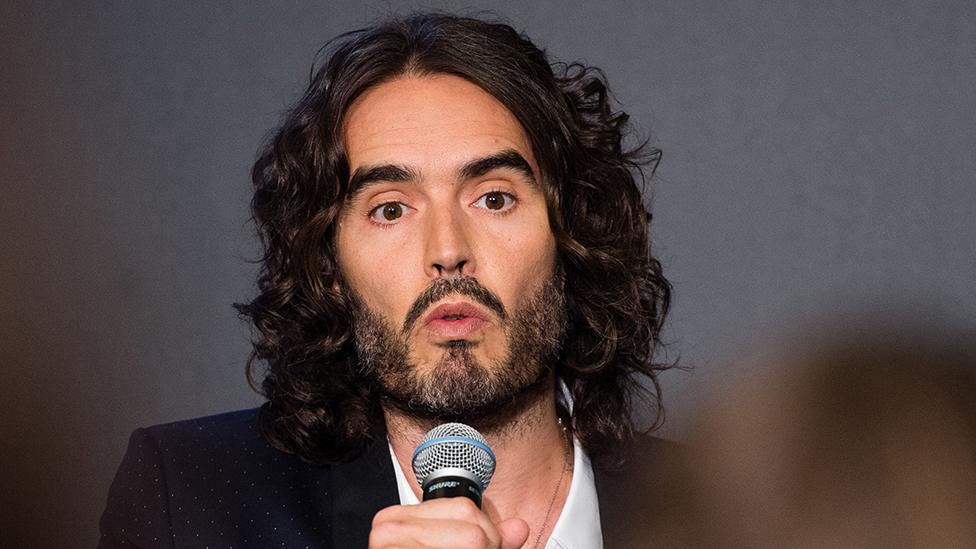
- Published16 September 2023
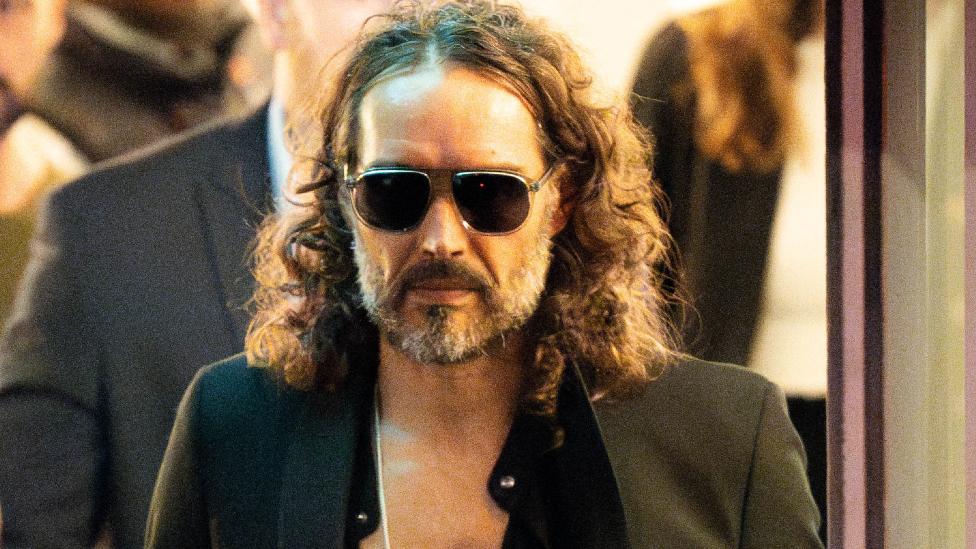
- Published17 September 2023
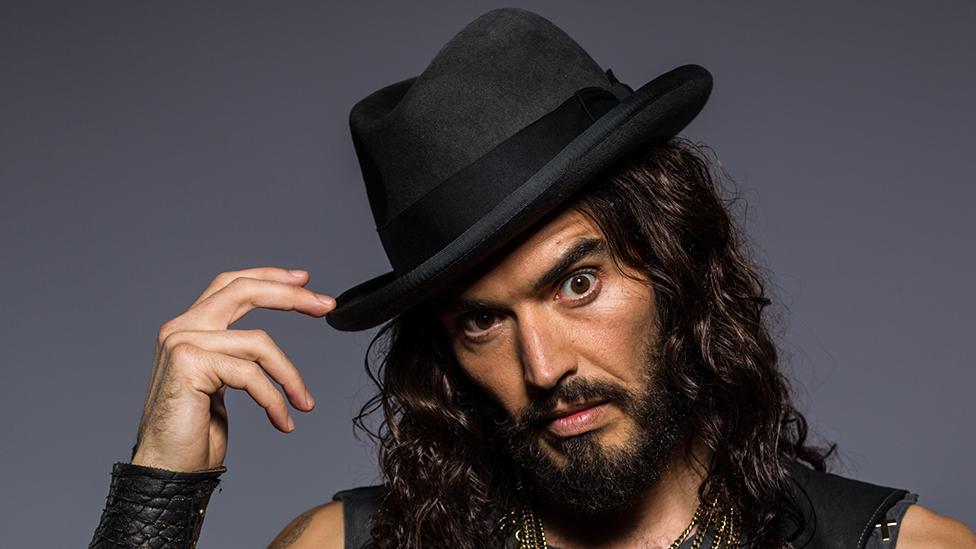
- Published17 September 2023
